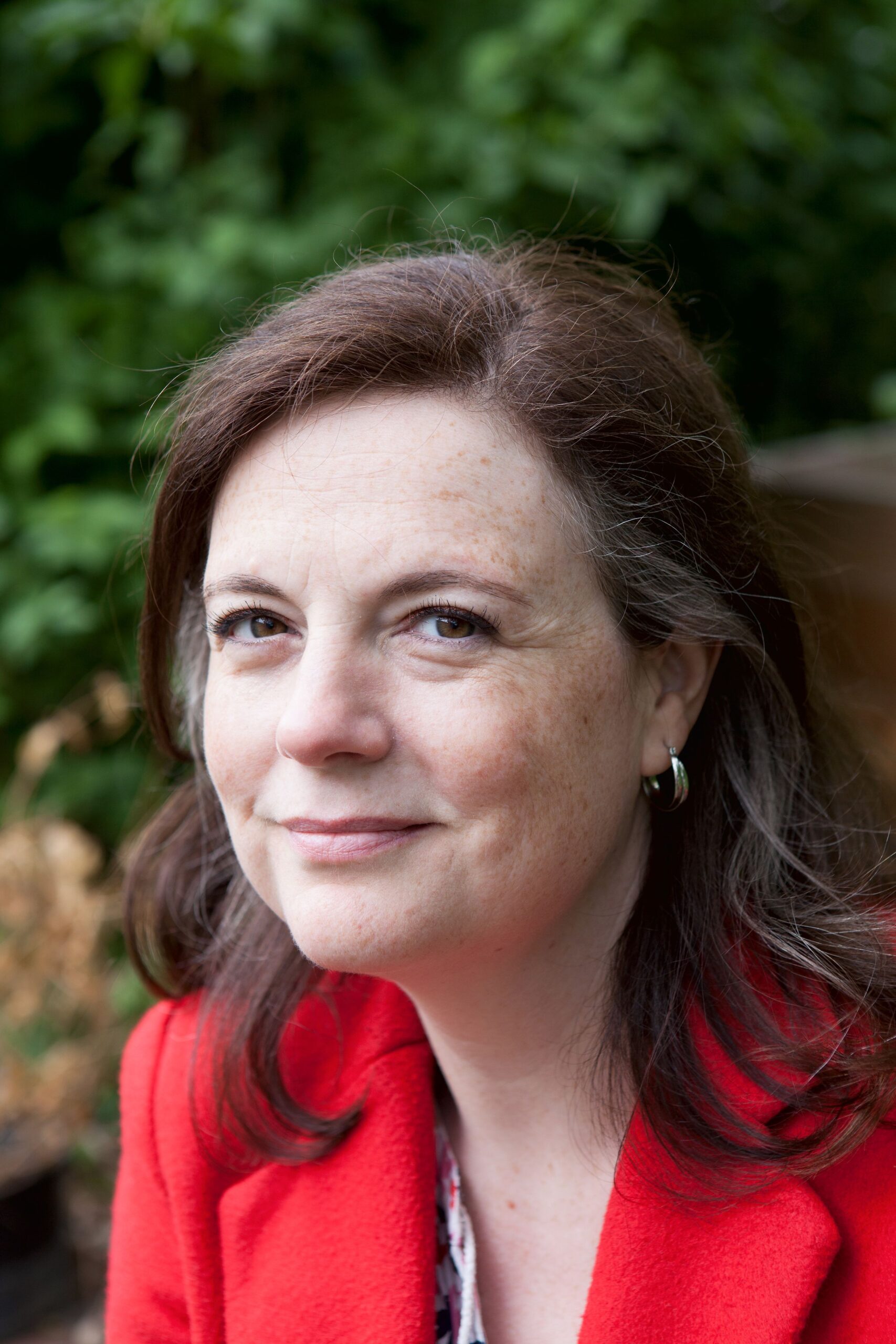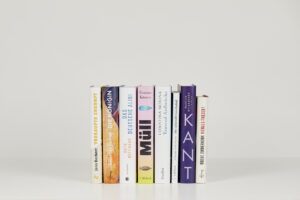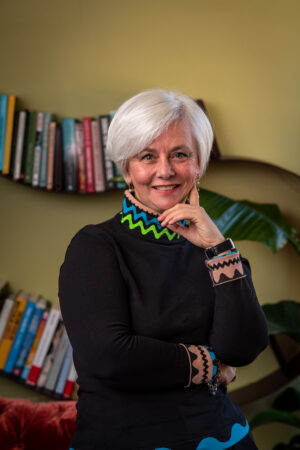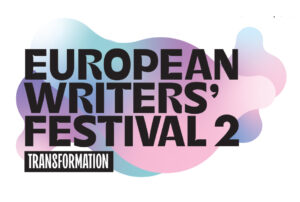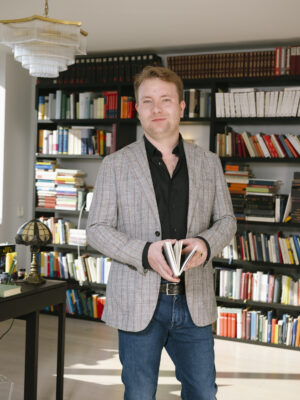New Books in German speaks to Katy Derbyshire about her dual career as publisher and translator.
Thanks, Katy, for speaking to us today. What are you up to, and how are you doing?
Hi Sarah! I’ve just got back to our office in Berlin after a short trip to London, where I had a couple of meetings and attended our writer Mithu Sanyal’s wonderful talk about Love Politics at the Goethe-Institut – and spent time with my family. So I’m really motivated today, and we’re announcing our spring titles for next year.
What was the impetus for setting up the V&Q imprint, and can you tell us a little about it?
It was partly prompted by Brexit, out of a strong desire to keep literature flowing in both directions between Germany, where I live, and the UK, where I’m from. And partly out of frustration that so much German writing is overlooked that doesn’t tick certain boxes. I felt there was plenty of historical fiction in translation, sweeping multigenerational stories involving WWII – but fewer books that work with humour of whatever kind, or tell stories a little further from what British readers expect “German books” to be. I wanted to fill in some of those gaps. The German indie Verlag Voland & Quist offered me an imprint to do just that, with editorial freedom and behind-the-scenes support.
I heard you speak recently about how an informal chat in your translator network helped you secure Sinead Crowe as a translator for the fantastic and funny road trip novel Daughters. What other benefits are there to being both a translator and a publisher? How have your two roles complemented each other?
Well, I’ve rarely had to all-out search for a translator! I know who does what and I have an idea of translators’ personal taste and what they’re good at, because it’s a small world. But also, for instance, I understand why translation takes a long time and I can make allowances and adjustments for that. I’m very happy to work with first-time translators and to give them extra support they might need, such as feedback on early drafts. And I’ve discovered I love editing translations from German, teasing even more out of them. I’m not sure I could do that as well if I wasn’t a translator.
And have there been aspects that are trickier as you jump between the two roles?
Timekeeping! And knowing where to draw the line, when I’m translating books I’m going to publish. Sometimes the power goes to my head and I make rash translation decisions. I’m very grateful to my editors for reining me in.
I’m very clear about naming and promoting the translators we work with…I want to amplify translators’ own voices as well as acknowledging the complexity of their work.
Katy Derbyshire
How has your background in translation shaped your approach as a publisher?
It means I’m very clear about naming and promoting the translators we work with. Each of our books (except the graphic novel) features a translator’s note at the end, because I want to amplify translators’ own voices as well as acknowledging the complexity of their work. We find it helps reviewers to see translators, and hence to include them in their reviews. And obviously, we name our translators on all the covers, pay them a decent rate and include them in as many author events as we can.
I’ve had some great experiences as a translator working with other publishers, and I’ve taken the best of that – the respect and appreciation, the supportive editing, the willingness to make translators part of events – steered clear of the bad things I’ve been through, and added my personal understanding of the translation process to the mix.
And in return, has your first-hand experience of being a publisher changed your translation practice?
It’s given me much greater understanding of what happens after the translation is delivered, and how to make all that easier when I submit my translation. And I think it’s made me bolder as a translator: I know it won’t matter if I cut a word here and there to make the translation work. I know my job is to deliver a sparkling, inspiring piece of writing, not a clone of the original.
What might translators overlook when they are pitching a book to a publisher?
It might be standard advice by now, but I never used to include comparable titles or an idea of who might read the book in my pitches. And they rarely worked out! It’s a near-impossible task and requires a lot of knowledge of the UK book market, but this kind of context is really helpful.
Do other translators pitch books to you? What sort of pitches would you encourage?
I don’t get a lot of pitches; I assume that’s because we’re small and have a fairly clear niche. I don’t really need pitches for books written in German, since I have a very good overview of what’s out there. But writers working in other languages while based in Germany are a whole different ball game.
How do you work with emerging translators – in both your publisher and translator capacities?
I mentioned that I’m happy to work with first-time translators as a publisher, especially if they’re in some way attached to a book or a writer. That was how I got my own foot in the door, so why not? Recently, we received an unsolicited sample translation from a Voland & Quist book, Is This The Other Side, Asks Pig. I worked with the translator on it, helped them communicate with the writer on a challenging issue, and edited the sample – which isn’t something that’s ever happened to me, but it seemed like a way to reward all the effort that went into it, since we don’t have a budget for sample translations.
As a translator, I’ve led several workshops for emerging translators, for the BCLT and others. But what might be less well-known is our longstanding monthly Translation Lab in Berlin, which anyone interested in literary translation can attend. It’s modelled on a similar set-up with Polish translators. We’re a mix of regulars who have been workshopping translations in the group for about 15 years now, and newcomers to the city or the industry, who can bring along things they’re working on for feedback, or just soak up the accumulated knowledge around the table. We enjoy a meal together and talk shop, very off-grid.
Have there been surprises for you in how readers have responded to the books you’ve published?
I suppose I’m most surprised by how people’s established views colour their reading. We actively pursue blog reviews from ordinary readers – I blogged for about seven years on German books, so I know writers really appreciate this kind of feedback. And it’s their personal responses that surprise me the most – which makes me assume that professional critics are no different, just less open about it. But often readers react the same way as I do, like the affection people tell us they feel for Selim Özdoğan’s Anatolian Blues trilogy, co-translated by Ayça Türkoğlu and myself. That’s very gratifying: getting beloved books into English and finding that other readers love them too.
What can we expect from V&Q in the years to come?
In the short term, April 2023 brings part three of Özdoğan’s trilogy: A Light Still Burns, rounding off Gül’s story as she grows old between Germany and Turkey. And also a fascinating novel by the Kurdish-German writer Karosh Taha: In the Belly of the Queen, translated by Grashina Gabelmann (another first-timer). The book explores what might happen, in a tight-knit community, if the protagonist of the same basic story was a girl, and if he was a boy. There’s no front or back cover – readers can pick which side to start reading, then flip the book over and begin again. I hope the writers and translators will be doing live events and celebrating their amazing work together with readers.
In the long term: let’s wait and see what the future brings.
Thanks Katy! That was really illuminating. To find out more about V&Q Books and explore their catalogue, click here.
Photo credit © Anja Pietsch

